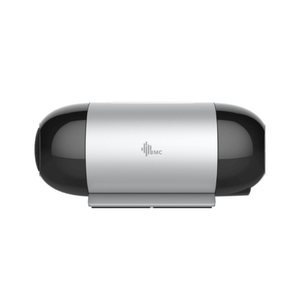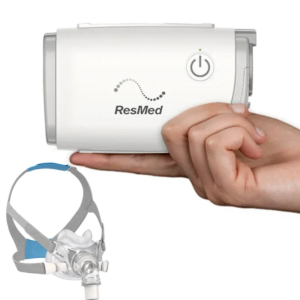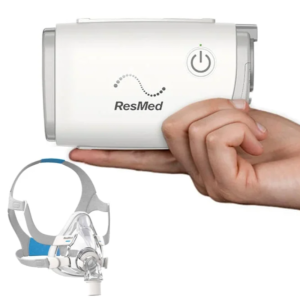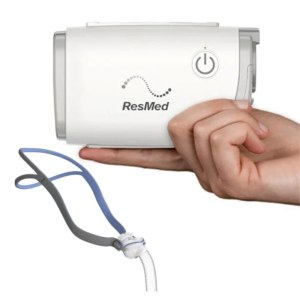Last updated on February 20th, 2024 at 01:10 pm
Can you skip a night of CPAP?
Anyone who has been diagnosed with Obstructive Sleep Apnoea (OSA) is already aware of the benefits associated with continuous positive airway pressure (CPAP) machines. These devices are designed to maintain a greater amount of pressure within one’s airway, reducing the chances that breathing issues will occur during the overnight hours.
Over time, the use of the CPAP machine can dramatically decrease the symptoms associated with OSA – and can greatly improve your overall health.
However, what if you decide to stop undergoing CPAP therapy for a short amount of time? Let’s take a look at some reasons why you might want a CPAP break. And also look at the negative consequences associated with such a cessation.
Reasons Why CPAP Therapy May be Temporarily Halted
There are actually many situations which might cause you to stop CPAP therapy for a relatively short time frame (such as a few nights). Perhaps you have a cold, and the increased airway pressure proves to be too irritating. There are also times when you are away from home and without access to main electricity (such as when camping). Or, perhaps, you are travelling, and the CPAP battery has not been properly charged.
Are there any dangers associated with a short-term halt in CPAP therapy? In order to fully understand the answers to this question, it is important to appreciate the overall intention of a CPAP machine.
Helpful article: Should you use a CPAP with a cold?
Why You Need CPAP Therapy
The most obvious reason is that CPAP provides you with the necessary air pressure to keep your airways open so you breathe freely while sleeping.
However, we also need to keep in mind another aspect attributed to regular CPAP therapy. It has been shown that the symptoms associated with Sleep Apnoea, such as snoring and very dry throat, will cause soft tissues to swell. This can make breathing even more difficult during the overnight hours.
The good news is that over time, your airway will regain its ability to stay open – and the swelling will reduce, returning to its normal state. It is this very same long-term aspect of CPAP therapy which needs to be addressed if we are to fully appreciate what occurs if you happen to suddenly stop treatments.
A Useful Analogy
We need to stress that CPAP therapy is intended to be utilised as a long-term treatment option for those who are suffering from obstructive sleep apnoea. The phrase “long-term” is particularly relevant in this situation.
Let us imagine for a moment that you have been prescribed glasses in order to correct a temporary vision problem. Would removing these glasses for a single evening dramatically impact the condition of your eyes? Of course not. This is essentially the same principle to take into account when referring to a sudden (and brief) cessation of CPAP therapy.
Stopping for a few evenings will not have a negative impact on the overall severity of your OSA. However, you might still find it more difficult to sleep. This may involve habit more than the physical effects.
For example, you might have grown accustomed to the low hum of the machine when it operates – or you could find it difficult to doze off without a CPAP mask. This arises from the simple fact that our bodies grow used to certain behaviours. When they are suddenly changed, it can sometimes be difficult to adapt.
What About Long-Term Consequences?
We should also address what would happen if you decided to stop CPAP treatments for weeks or months at a time. While this rarely occurs, it is still wise to take a closer look.
Doctors have always stressed that the effects of Obstructive Sleep Apnoea are cumulative in nature. In other words, they do not develop overnight. The majority of those who have been diagnosed with this condition have likely been suffering for years.
In the very same respect, those who stop CPAP therapy might find that their symptoms regress to previous stages of discomfort. Some of the signs that therapy needs to be resumed include:
- Restless evenings.
- Profound bouts of snoring.
- Waking up choking or gasping for air.
- Morning headaches
- Difficult concentrating
Of course, these are the very same symptoms which have served to come to a preliminary diagnosis, and it is therefore only natural that they may return if CPAP therapy is stopped for extended periods of time.
Risks from a One-Off Break
Ceasing therapy could impact your ability to enjoy a sound night of sleep – especially if you are not around a CPAP for consecutive days or weeks. This is due to the fact that tissues within the mouth and throat that were previously fine may become irritated and inflamed once again.
It is always best to make it a point to use your CPAP machine on a nightly basis. However, do not fret if you happen to miss a treatment once in a while due to circumstances out of your control.
Alternative options
If you are travelling away from home or don’t have access to power, you can opt for a temporary alternative treatment method. We recommend discussing with your healthcare provider if these options are suitable for your Sleep Apnoea severity before making any changes. Options may include:
You could also try a travel device that is much lighter than a standard device, making it easy to take away with you. If you are camping or anywhere that does not have mains power, you may also consider a battery pack to power your machine.
Travel-Sized CPAPs
Published: 13th February 2020







